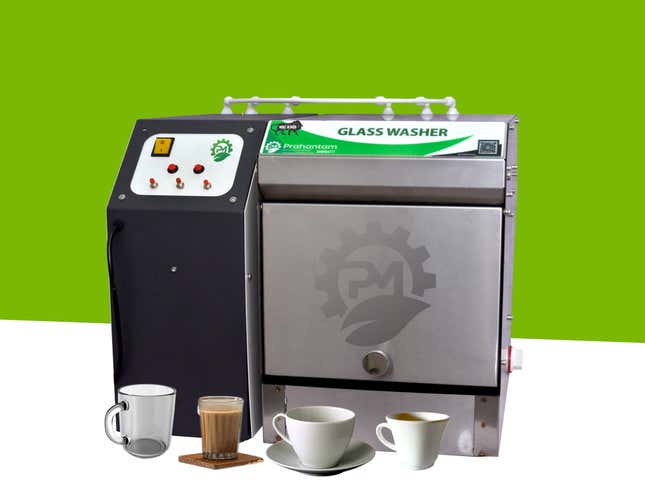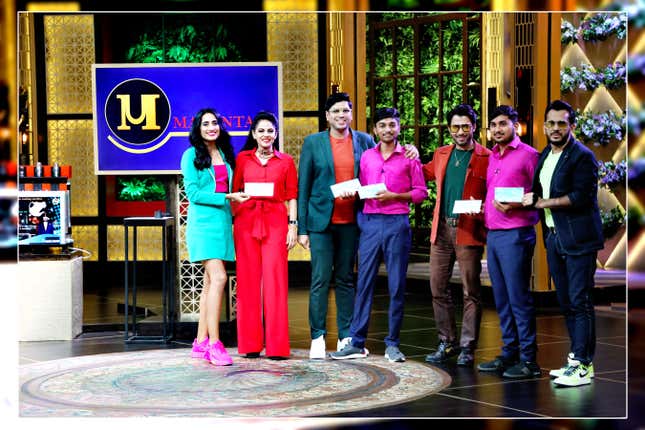India’s chai tapri (tea kiosk) culture at bus stops, railway stations, and seemingly every other street corner has persisted for decades, even as the vessels for holding the tea changed from everyone (mud cups) to glass cups and, more recently, to paper cups.
Since the covid-19 pandemic especially, people have been wary about the hygiene of reusable glass cups that are washed by hand. The disposability of paper cups makes them seem like a healthier option—but they’re not.
A person drinking one cup of hot liquid from plastic-coated paper cups over 15 minutes is ingesting 25,000 microplastics and increasing their risk of cancer, reproductive defects, and neurological disorders, according to a 2020 study by Indian Institute of Technology Kharagpur. Plus, the plastic in the coating is “not even a little recyclable, reducible, reusable—nothing,” laments Dhaval Nail, who along with his brother Jayesh Nai is promoting the return of glass cups—this time with the stamp of assured hygiene.
As the founders of a new company called Mahantam, the brothers (Dhaval is 22 and Jayesh 24) have developed an automatic glass-washer for India’s tea stall owners.

Available in two sizes—1 ft x1 ft and foot 2 ft x 2 ft —Mahantam’s Rs35,000 ($420) fully automatic machine washes nine cups at a time in somewhere between twelve and twenty seconds, based on the cycle chosen. There’s also a semi-automatic alternative available for Rs28,000 ($336).
The brothers, who hail from Dhanera, Gujarat, have thought about all sorts of potential cost and energy savings, from using pressurized water to save water to building a machine that works at just 12 volts. The same battery that tea vendors use for a small bulb in their stalls can be used for the machine.
From college to Shark Tank India to mass production
Dhaval started prototyping a washer in 2020 as part of a college project, initially borrowing Rs10,000 ($120) from his professor and mentor. A YouTuber friend of his shared the creation online, and the first order came in. After that, Dhaval pitched his ideas to more professors and gathered 1 lakh rupees ($1,200) to create improved versions.
Many months, prototypes, and three orders later, the duo appeared on Shark Tank in November 2022 and secured an all-shark deal of Rs30 lakh (nearly $36,000) for 20% equity.

To date, the entrepreneurs have given machines to 40 tea stall owners across Ahmedabad, Mumbai, Pune, Bengaluru, and other Indian cities, to use and review.
“We are giving (away) machines so we can get proof-of-concept machines that are perfect, and then we can head towards mass production,” Dhaval said.





